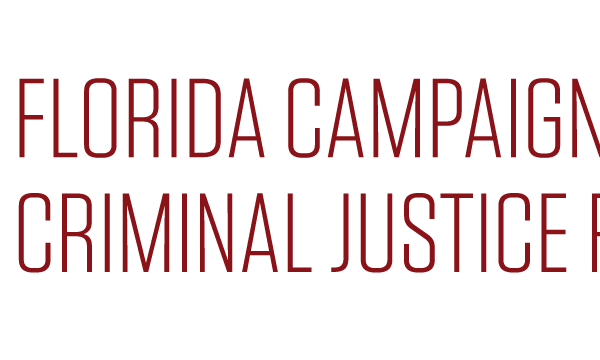TALLAHASSEE, FL – Members of the Florida Campaign for Criminal Justice Reform today sent a letter to Gov. Ron Desantis, which provided a draft Executive Order that would rapidly address the risks faced by all incarcerated people, prison and jail staff from the increasing threats posed by COVID-19. The letter highlights the need for a swift and coordinated statewide response by all stakeholders in the criminal legal system to forcefully address the COVID-19 pandemic and limit the spread of the virus among the state’s most vulnerable communities.
Most facilities across the state have implemented varying responses to this public health crisis in an inconsistent or case-by-case fashion, which has led to delayed action, confusion, misallocation of resources, and preventable infections. To curtail the impending spread of the virus, the letter advises that the state mandate the release of vulnerable people in state custodial facilities and reduce overall population in state custodial facilities through the following measures:
Begin a process of immediate release of all people identified by the CDC as particularly at-risk – older people and people with underlying health conditions or who are otherwise immune-compromised – whose sentences would end in the next two years, anyway.
Begin a process of immediate release for anyone whose sentence would end in the next year, anyway. Jail and prison facilities make social distancing impossible and are not built or prepared to fulfill the medical need associated with COVID-19.
Direct local stakeholders, including police, prosecutors, and judges overseeing criminal matters to take all possible steps to reduce the intake of people into state and local custodial settings, immigrant detention facilities, or other carceral environments.
Currently there are over 13,000 confirmed cases in Florida, and over 260 COVID-19 related deaths. Additionally, as of April 5th, the public has been made aware of at least twenty-six Florida prison workers who have tested positive for COVID-19, two people incarcerated in Florida prisons, and at least two Florida residents detained in jail pre-trial. These numbers are expected to rise.
Documents
Stay Informed
Sign up to be the first to hear about how to take action.
By completing this form, I agree to receive occasional emails per the terms of the ACLU’s privacy statement.
By completing this form, I agree to receive occasional emails per the terms of the ACLU’s privacy statement.

